We have the transcripts from day 1 of the Igor Danchenko trial. Pretrial matters and jury selection took up all of yesterday morning; openings and the prosecution’s case-in-chief, led by Special Counsel Durham, started in the afternoon.
Let’s dig in and start with the opening statements.
Special Counsel Prosecutor Michael Keilty opened with explanations of Danchenko’s lies to the FBI and discussed some FBI misconduct:
In fact, he went so far as to accuse the FBI of engaging in “troubling conduct” based on the Steele dossier and, as an extension, Danchenko’s misrepresentations:

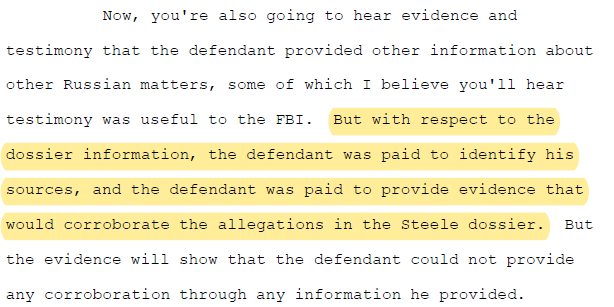
How will the government prove part of its case against Danchenko? Keilty lays it out:
Being a false statement case, the Special Counsel must prove that the lies were material. The Special Counsel provides insight into how it will meet that burden:
Danchenko’s Opening
Opening statements also provided insight into Danchenko’s defenses. To summarize, they will argue Danchenko was being truthful and that his purported lies – if they were lies – were immaterial.
In doing so, they provided some new information on FBI malfeasance:
Steven Somma (who was “primarily responsible for some of the most significant errors and omissions in the FISA applications”) told Agent Auten “not to probe or ask a lot of follow-up questions with Mr. Danchenko” in order to get him to cooperate.
They also stated that Danchenko provided “critical intelligence to the Russian government’s efforts to conduct influence operations in the U.S. . . He provided the FBI [] insight into individuals, into areas it was otherwise lacking.” (We suspect this might have to do with Maria Butina.)
Read More @ technofog.substack.com
Our article on the first day of the Igor Danchenko trial cut off during the testimony of FBI Supervisory Intelligence Analyst Brian Auten and his discussion of the FBI’s interviews of Danchenko, which started in January 2017.
We’ll resume there – with Special Counsel John Durham’s questions about Danchenko’s purported 10 to 15 minute call with Belarusian businessman Sergei Millian.
Q Just to get everybody back on track, the first day you had said that he had sent two emails, no response, and then got an anonymous call from somebody speaking with a Russian accent and it was male, correct?
A That is correct.
Q Do you recall, sir -- with respect to what it is that Mr. Danchenko said, did he say what kind of telephone facility he received the call on, that is, a hard line? A cell phone? Do you recall?
A My recollection is he said a call.
What did Millian purportedly tell Danchenko during that call? According to Auten:
He had talked about a relationship between – with the Trump campaign and Russia and issues involving, I think, kind of whether or not there was any relationship and a kind of -- I don't think he used the term "well-developed conspiracy" in that, but it was along those lines.
Auten was then asked about the documents that Danchenko provided to the FBI. Auten testified that he was provided a single e-mail chain. In fact, there were other e-mails that “Mr. Danchenko had sent to Mr. Millian” that Auten hadn’t seen up until his preparation for trial. (The importance being Danchenko’s concealment from the FBI.)
Moving on, Durham asked Auten about a LinkedIn message sent from Danchenko to Millian. This e-message proposed a call or a meeting in Washington or New York:
Danchenko’s request for a “call” is particularly important since it was made after he supposedly received that 10 to 15 minute call from someone he thought was Millian. This supports the prosecution’s theory of the case: the call from Millian to Danchenko never happened. Danchenko invented the call so that he could provide cover for his real source (Democrat Charles Dolan).
Durham then introduced an e-mail from Millian to an acquaintance, sent five days after Danchenko reached out. Here it is in full:
Durham then used that e-mail to focus on the FBI’s lack of effort to corroborate Danchenko’s claim about Millian. FBI Analyst Auten admitted he hadn’t seen that e-mail until recently, and that the FBI didn’t even check Millian’s travel records during that period of time.
Q Now, with regard to that email from Millian to Zloderev, you didn't have occasion to see that prior to being shown this document recently?
A No.
Q With regard to Millian saying that on Friday he's returning from Asia and the like, do you know whether you or other members of your group had ever retrieved Millian's travel records to see if he was even in the United States on -- in the latter part of July 2016?
A I don't recall that.
Q Would it surprise you to learn that he wasn't even in the United States?
A I mean, he says he's in Asia.
Continuing with the theme of purposeful FBI incompetence, Durham asked Auten if the FBI had translated communications between Danchenko and an associate of Millian. These documents were provided to the FBI by Danchenko in January 2017. Auten responded “I’m not aware if it was translated.”
Auten was also asked about other Danchenko communications with associates of Millian. There were introduced to establish that Danchenko never received that mysterious call. A key excerpt:
Auten and the FBI, however, chose to remain ignorant and never obtained these communications. Durham had Auten run down the reasons why they would have been important:
Q Yesterday you told the jury that in meeting with Mr. Danchenko, there were two things that you were interested in, correct?
A Correct.
Q One of them was corroboration of information in the dossier?
A Correct.
Q And the second was sources of information?
A Correct.
…
Q Would those have been significant to you?
A Yes.
Q Why would they have been significant to you?
A It would help us to better understand exactly how the course of information went that was in the reports themselves.
Q Would it have been of any import to you to know in evaluating whether an anonymous call had come in to see the content of the emails from July 21st and then August 18th concerning Mr. Millian not having responded?
A Yes. I mean, all of those emails would be very helpful to understanding the full extent of communications between the parties.
…
Q Because if the written record in the defendant's own words was that he never responded, wouldn't that be of assistance in evaluating his reliability concerning whether or not he had gotten this call he supposedly had gotten?
A It would be helpful, yes.
Durham continued pressing Auten about why analyzing these communications would have been important. There was this key exchange on whether these e-mails, which Auten said were “significant,” could have influenced the FBI. Pay attention – it’s Auten hedging when confronted with his own failures.
Q Would it have the capacity or the ability to have influenced steps taken or not taken by the FBI?
A Possibly, yes.
Q Possibly?
A Well, again, I'm an analyst, not an investigator. So in that sense, it would be very helpful from an analytical side to understand the full extent of communications between the parties.
Direct examination then moved on to Auten’s knowledge of Charles Dolan. (Background on Dolan here.) During Auten’s overseas interview with Christopher Steele in October 2016, Dolan’s name had come up:
Q And did you tell the jury yesterday that separate and apart from sources, you had gotten three names from Mr. Steele as to persons who might be knowledgeable?
A Yes.
Q Was Charles Dolan one of those names?
A Yes.
However, from October 2016 through January 2017, the FBI hadn’t put together – or, hadn’t properly investigated – whether Dolan was a source for information in the Steele Dossier. Then there’s this remarkable admission from Auten. Although they were interested in Dolan, they didn’t raise this issue with Danchenko.
Q By January of 2017, do you recall what information the bureau was interested in relating to Mr. Dolan?
A From my recollection, we had done some preliminary looking, and it was at that stage -- I don't recall. There was a lot being done.
Q Okay. So my next question, then, to your recollection, did you or Mr. Somma raise Mr. Dolan's name with Mr. Danchenko?
A Not to my recollection, no.
Durham also asked Auten about Danchenko’s lack of transparency about using Dolan as a source. Danchenko never offered Dolan’s name.
Q Tell the jurors what your recollection is in that regard.
A My recollection is asking if there were any additional individuals that we haven't talked about in this interview that would be sources of information for the dossier.
Q And is that clear in your mind?
A Yes. I documented it in the EC.
Q No doubt that you were asking Mr. Danchenko if there were any other sources you can tell us about, correct?
A That's my recollection.
Q Charles Dolan's name was not brought up?
A No.
From there, a series of e-mails between Dolan and Danchenko were presented to Auten. These e-mails showed Danchenko begging Dolan for information on the Trump campaign, and Dolan obliging. Auten hadn’t been given these e-mails by Danchenko. And they were significant, as they showed the flow of information and how Danchenko thought his and and Dolan’s interests converged - because they both were assisting, in their own way, the Democrat candidate for President.
Auten then discussed his time with Special Counsel Mueller’s team.
Q And then when Crossfire Hurricane transitioned into Director Mueller's inquiry, did you remain with the project, or did you go elsewhere?
A No. I remained and went with Special Counsel Mueller.
…
Q In that connection, at any point in time after January 2017, whether you were part of the Crossfire Hurricane group or had evolved into Mr. Mueller's inquiry, did you continue to be involved personally in matters relating to Mr. Danchenko and his sources?
A Yes.
However, one name that was provided by Danchenko was that of Olga Galkina. Auten and others had gone to interview Galkina in Cyprus in August 2017 – during Auten’s time with Special Counsel Mueller.
After that interview, Auten passed questions on to FBI Agent Kevin Helson, who had become Danchenko’s handler, after Danchenko was made to be a confidential human source. (Convoluted, I know.) Specifically, those questions were about Charles Dolan.
Q And do you recall with respect to the subject matter of the question or questions that you asked Mr. Helson to pose to the defendant, what were those about?
A Those were about -- I think there were questions about Mr. Dolan. I believe there were questions about other aspects of things that Ms. Galkina had talked about that we wanted clarification on.
Q With respect to the questions that you asked Mr. Helson to ask of Mr. Danchenko, to your knowledge, are those questions then put to Mr. Danchenko?
A That is my understanding.
Unfortunately, Auten didn’t know the responses to those questions. Agent Helson, whom we expect to testify, might have that information.
Cross-Examination by Danchenko’s Attorneys
The cross-examination – our summary of which will be brief – started with Auten’s previous statements to the Inspector General about Danchenko. During the IG’s investigation, Auten had given “a number of positive statements regarding Mr. Danchenko.” He had also made positive statements to Congress about Danchenko – testimony Auten still stands by (if only because he’s dug himself into a hole):
"I believe the primary sub-source was being truthful about who his sub-sources were. I don't think he was fabricating sub-sources."
However, after Durham was appointed, Auten became – and apparently remains – a subject of the investigation:
Danchenko’s defense was effective when asking about Auten’s impression of Danchenko at the time of the interview. Auten thought Danchenko was “trying to help.” And Auten admitted that he and Stephen Somma didn’t necessarily want to conduct a thorough interview of Danchenko at the time, thus explaining why they didn’t demand documents or ask about every allegation in the Steele Dossier. They also laid the groundwork for the defense that Dolan wasn’t necessarily a “source” for Danchenko, in that Dolan relied on some open source articles when relaying information on the Trump campaign.
The defense also spent a good deal of time discussing Millian’s various phone numbers and the possibility that he (or the person Danchenko “thought” was Millian) used an App like Skype, WhatsApp, Wickr, or Telegram to contact Danchenko. The flaw? Danchenko’s e-mails to Millian requesting to speak over the phone or meet – after the alleged call.
Redirect by Durham
Durham again focused on Auten and the Crossfire Hurricane Team’s efforts to corroborate Danchenko’s statements. Auten’s testimony was an admission of how little they did, ignoring both travel records and phone records.
There were further details on Auten being a “subject” of an “inquiry.” The investigation into Auten – who is a subject, not a target – has to do with the Danchenko matter and also Crossfire Hurricane and the Carter Page FISAs:
Durham also raised a good point about the believability of Millian, a vocal Trump supporter, calling Danchenko to provide insider dirt:
Q. So would you find it peculiar that somebody who had never spoken to Millian, Millian never spoken to him, would be telling somebody he doesn't know about a, quote, well-developed conspiracy of cooperation, between The Trump Organization and Russian leadership?
A. I mean, I would say that is peculiar, yes.
Q. That is very peculiar, right?
A. Yes.
Q. Almost unbelievable, wouldn't you say?
A. I don't know if I would say "unbelievable," but I would say "peculiar."
Things got testy towards the end of Auten’s testimony, indicating Durham’s general irritation with Auten’s conduct in Crossfire Hurrican and his waning patience with Auten as a witness.
Q. Right. So when he -- Mr. Danchenko told the FBI he received this call from somebody he believed to be Millian, isn't it, in fact, true that you took that to mean that that information from the report had come from Millian based on what the defendant told you?
A. No. I think we believed at the time that we weren't clear and that we would have other opportunities to talk to him about that as well.
Q. Okay. So what you are telling this jury is that you all then took information from the affidavit or from the dossier report and put it in an application to a FISC and you thought – . . . Is that what you’re telling the jury?
A. Again, as an analyst, I am not involved in putting together the application in a FISA.
It continued – with Durham straight-up telling Auten he was going to be suspended by the FBI. (Leading us to believe any charges against Auten are unlikely. Not impossible, but unlikely.)
Then Durham’s near-mocking of Auten’s investigative decisions.
Q. And is there some particular reason why experienced FBI personnel wouldn't go and look to see what the phone records reflected?A. Again, you would have to talk to somebody that was in the investigative side of things. I -- as an analyst, I can't -- I can't ask for phone records. That has to be –
Q. You want this jury to believe that analysts don't participate in investigative decisionmaking?
A. Analysts participate, but analysts aren't the ones that are going to make the decision to go out and actually get phone records or obtain NSLs or the like.
Q. Can you think of any good reason -- not any reason, but any good reason not to have gotten those records and analyzed them?
A. No.
Q. Do you believe whether -- with respect to this information, if people were much too ready, willing, and able just to accept it?
A. I don't know if I would articulate it that way.
Q. Well, you didn't have any corroborative evidence, correct?
A. Correct.
That about wraps it up with Auten – and with the second day of trial.
The next witness? Tomorrow starts with Charles Dolan.
The legal case brought by prosecutor John Durham against Igor Danchenko is predicated on the notion that Christopher Steele’s source for his dossier willfully and intentionally lied to the FBI, and therefore Danchenko is guilty of purposefully misleading FBI investigators assigned to the Trump-Russia/”crossfire hurricane” investigation.
Transparently everyone knows the FBI were not duped by Danchenko and records indicate Danchenko told them the Steele dossier was full of fabricated nonsense. Additionally, to keep the revelation of the dossier as nonsense hidden, the FBI hired Danchenko as a confidential human source, technically shielding him from being questioned or exposed. The FBI decision to hire Danchenko was to keep the fraudulent dossier useful for their Trump targeting operation.
So, what’s going on?
This is where John Durham is doing two things: (1) He is protecting the corrupt DOJ and FBI institutions by not investigating any government action; and yet, (2) Durham is exposing corrupt FBI and DOJ action through his court filings and cases. Yesterday Durham provided more evidence of just how corrupt the FBI was in the lead-in to the 2016 election.
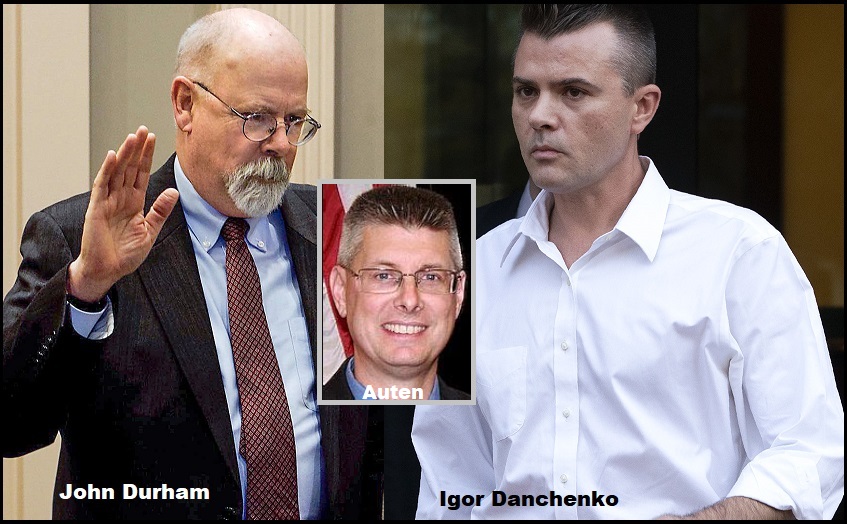
FBI supervisory analyst Brian Auten testified Tuesday that Hillary Clinton’s contracted opposition researcher, Christopher Steele, hired by Fusion GPS to dig up dirt on Donald Trump, was offered up to $1 million by the FBI in early October 2016 if Chris Steele could prove the claims within the Trump dirt dossier he authored.
Steele was never paid the money because he could not prove the claims within the dossier, nor would he give up the name of the primary source for the information, Igor Danchenko. However, despite the FBI knowing the dossier could not be proved, validated or verified, later that same month they used the dossier as evidence to support a Title-1 FISA warrant against former Trump campaign aide, Carter Page.
The details provided by Durham only prove the researched outline we made almost 5 years ago.
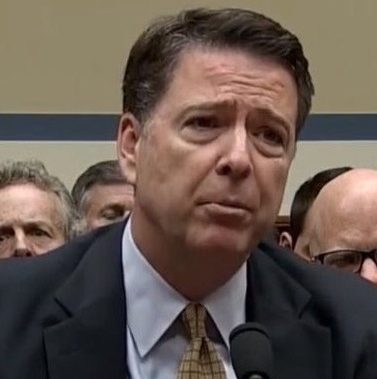 The FBI knew the Steele dossier was junk, yet they used it in lieu of the mandatory ‘Woods File’ to seek an all-inclusive secret search warrant against the Trump campaign. Carter Page was a tool for the fraudulent search warrant, the FBI knew Carter Page from previous work he had done for them as an informant. However, to get the warrant they needed to accuse Page of being an asset of a foreign government – so they did. The Steele Dossier was used as manufactured evidence to support the FISA application.
The FBI knew the Steele dossier was junk, yet they used it in lieu of the mandatory ‘Woods File’ to seek an all-inclusive secret search warrant against the Trump campaign. Carter Page was a tool for the fraudulent search warrant, the FBI knew Carter Page from previous work he had done for them as an informant. However, to get the warrant they needed to accuse Page of being an asset of a foreign government – so they did. The Steele Dossier was used as manufactured evidence to support the FISA application.
The FBI goal was to create a legal mechanism putting everyone in/around Donald Trump under surveillance. This was the “insurance policy” as described by FBI agent Peter Strzok. The FBI had been conducting unlawful political surveillance against Donald Trump throughout the 2016 campaign, the FISA warrant was used as the legal basis to make the previous and future surveillance legal.
The FBI knew the dossier was junk, the FBI didn’t care – they needed it to create a fraudulent search warrant.
The FBI knew Carter Page was not a Russian asset, the FBI didn’t care – they needed him to get to Trump.
The FBI goal was always to conduct political surveillance against Donald Trump.
(Via CNN) – Shortly before the 2016 election, the FBI offered retired British spy Christopher Steele “up to $1 million” to prove the explosive allegations in his dossier about Donald Trump, a senior FBI analyst testified Tuesday.
The cash offer was made during an October 2016 meeting between Steele and several top FBI officials who were trying to corroborate Steele’s claims that the Trump campaign was colluding with Russia to win the election.
FBI supervisory analyst Brian Auten testified that Steele never got the money because he could not “prove the allegations.”
Auten also said Steele refused to provide the names of any of his sources during that meeting, and that Steele didn’t give the FBI anything during that meeting that corroborated the claims in his explosive dossier.
Auten was testifying at the criminal trial of Igor Danchenko, a primary source for Steele’s dossier, who is being prosecuted by special counsel John Durham. Danchenko has pleaded not guilty to lying to the FBI.
CNN previously reported that the FBI reimbursed some expenses for Steele, who had been an FBI informant.
Durham, a Trump-era prosecutor who is looking for misconduct in the FBI’s Trump-Russia investigation, has used some of the proceedings Tuesday to criticize the FBI’s handling of some of the early steps in the Russia probe. Durham handled many of the in-court arguments on Tuesday and personally questioned Auten on the witness stand – a rare move for a special counsel and former US attorney. (read more)
Offering $1 million to a source to provide evidence is not a decision made by a supervisory special agent.
The authorization to spend up to $1 million for evidence is a decision made by the Director or Deputy Director of the FBI.
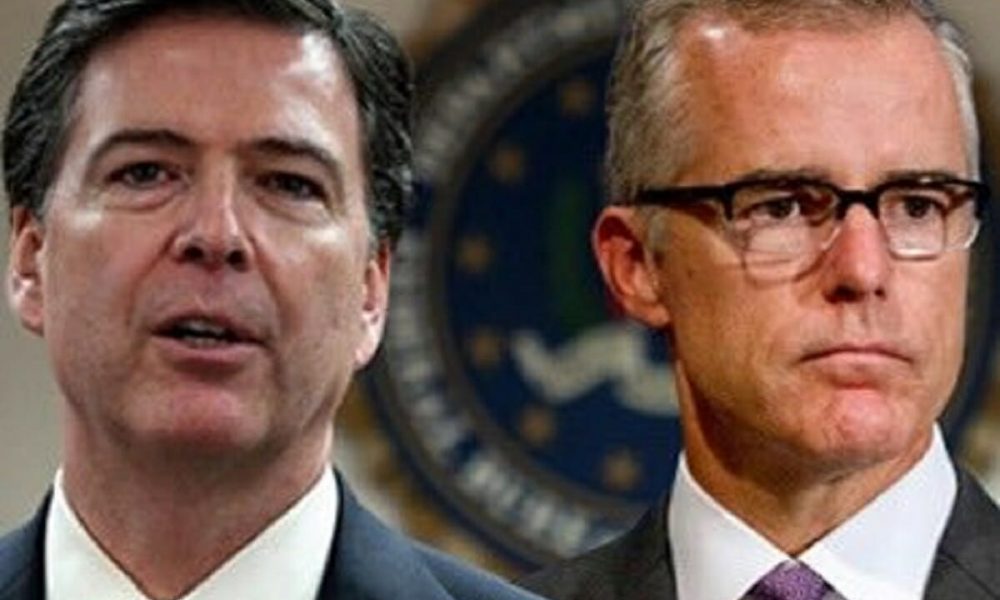
Follow the timeline:
Steele offered $1 million to prove the dossier in early October 2016. He cannot.
FBI uses dossier in late October for a FISA warrant against Trump campaign.
Dossier source Igor Danchenko interviewed by FBI in January 2017. Tells FBI dossier is junk.
FBI hires Danchenko in March 2017 just before renewing the FISA they now know is based on junk.
May 2017 Robert Mueller appointed to cover up all of the DOJ/FBI corruption that existed in the Trump targeting.
June 2017 Mueller interviews Danchenko, then renews the FISA.
February 2019, Bill Barr enters as Attorney General.
April 2019 Robert Mueller completes investigation.
May 2019, Bill Barr appoints Durham just to look into things. Immediately then begs Trump not to declassify any documents. Trump writes executive order giving Bill Barr ability to review and declassify documents.
October 2020, Bill Barr officially (and quietly), makes John Durham a special counsel. We don’t find out until December (after the Nov election).
October 2020, FBI drops Igor Danchenko as paid informant.
Put it all together and you see the continuum.
(1) Donald Trump was being targeted by a corrupt DOJ and FBI. (2) Robert Mueller was installed in May 2017 to cover up the targeting. (3) When Mueller is nearing his completion, Bill Barr steps in to mitigate institutional damage from 1 and 2. (4) Barr maintains damage control and installs Durham. (5) Durham takes over the coverup operation from October 2020 (Danchenko safe to exit) through today.
Main Justice kept a bag over Danchenko until they needed a scapegoat, created by Durham, to sell a narrative that Main Justice was duped. John Durham is charging Danchenko (working outside govt) with lying to the FBI while simultaneously avoiding drawing attention to the FBI/DOJ officials (inside govt) who knew Danchenko was lying and were willfully blind to it in order to continue attacking and investigating President Donald Trump.
James Comey, Robert Mueller, Bill Barr, John Durham, the Mar-a-Lago raid… it’s all one long continuum of the same targeting and coverup operation.
Bill Barr was the Bondo application and John Durham is the spray paint.
The entire system is corrupt.
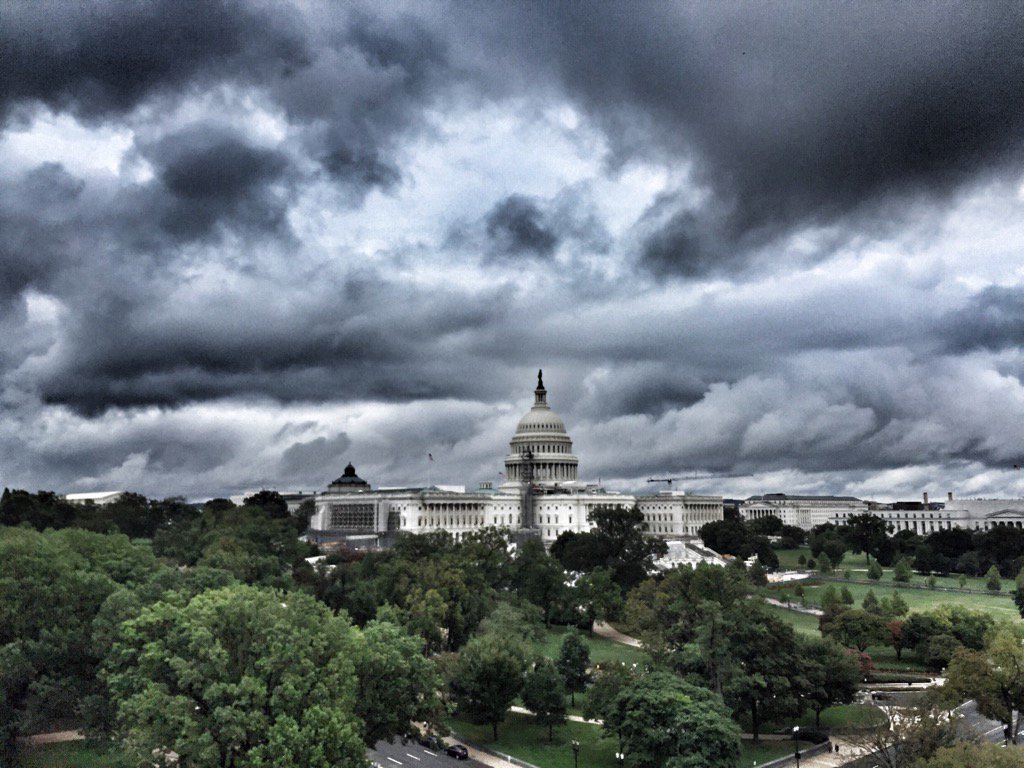
Day 3 of the Igor Danchenko false statements trial started with the testimony of Democrat activist and Clinton ally Charles Dolan. For background, Dolan has historic ties to the Democrat party, was a state chairman of Bill Clinton’s 1992 and 1996 presidential campaigns, and was an advisor to Hillary Clinton’s 2008 presidential campaign.
And he was also a source for the Steele dossier.
Dolan’s connections to Russia began from his consulting work, where he served to attract foreign investments into Russia in the 2000s. As part of that job, he would have regular conference calls with the spokesman for Russian President Vladimir Putin and had occasional meetings with other Russian officials. Other work, such as assisting Disney in obtaining a broadcast license, would keep him connected to Russia.
Dolan was introduced to Igor Danchenko through Fiona Hill in the spring of 2016. I’ll let Dolan explain:
That friend Danchenko was trying to assist was a woman by the name Olga Galkina. Dolan would eventually meet with her in Cyprus in March of 2016. Galkina would eventually become relevant to the Dossier story.
Danchenko and Dolan kept in touch, meeting from time to time. Part of the reason they stayed connected was because of the “potential opportunities” Dolan’s firm (kgobal) and Danchenko’s employer, Orbis, might pursue. (The business opportunities never presented themselves.)
In May 2016, Dolan reached out to Danchenko because he would be traveling to Moscow to attend a conference at The Ritz-Carlton. Dolan eventually traveled to Moscow in June 2016. At that time, Danchenko was already in Moscow and the two met in that city. Dolan returned to the US and he and Danchenko remained in occasional contact.
All this background information was necessary to help establish the Dolan-Danchenko relationship. From there, Special Counsel Michael Keilty produced an e-mail where Danchenko reached-out about the Trump campaign:
Dolan responded to Danchenko, stating: “Let me dig around on Manafort. Pretty sure the new team wanted him gone ASAP and used today's New York Times story to drive a stake in his heart.”
He followed-up with another e-mail to Danchenko, where he said:
"I had drink with a GOP friend of mine who knows some of the players and got some of what is in this article, which provides even more detail. She also told me that Corey Lewandowski, who hates Manafort and still speaks to Trump regularly played a role. He is said to be doing a happy dance over it. "I think the bottom line is that in addition to Ukraine revelations, a number of people wanted Manafort gone. It is a very sharp elbows crowd."
This information turned out to be false. Dolan admitted upon questioning from Keilty that he never had a drink with a “GOP friend.” He got the information from cable news.
Danchenko would again request information from Dolan, saying “It's an important project for me, and our goals clearly coincide.” Dolan figured Danchenko said this because “he knew I would be a supporter of the Clinton campaign.”
Special Counsel Keilty then showed Dolan parts of the Steele Dossier and compared them to the information Dolan provided Danchenko. He asked Dolan if the information he provided Danchenko was “substantially similar” to what was in the Steele Dossier. Dolan’s response: “Yes.”
Fast forward to January 2017. Buzzfeed released the Steele Dossier and a client of Dolan’s was mentioned in the document. Dolan had a suspicion about Orbis and Danchenko’s involvement, so he reached out. Danchenko hedged on the matter and then disappeared, never getting back to Dolan:
Cross-Examination of Dolan
I’ll be brief on this part. Dolan conceded that at the time he first saw the Steele Dossier, he didn’t recognize the information he provided Danchenko. Instead, Dolan recalled he may have realized he was a source of the Dossier information during an interview with the Special Counsel in September 2021. Then there was this key exchange:
Q And I think you have already testified to this, but even knowing everything that the government has done to look into you, it's still your testimony today that you've never talked to Mr. Danchenko about anything that ended up in the dossier, correct?
A Correct.
Re-direct of Dolan
That exchange we cited above seems to contradict Dolans’s statement during direct examination that the information he gave Danchenko was “substantially similar” to the Dossier allegations. Keilty cleaned it up with this exchange:
The Testimony of FBI Special Agent Kevin Helson (Washington Field Office)
Agent Helson was Danchenko’s handler once he became a confidential human source (CHS) in March 2017. He wasn’t a part of Crossfire Hurricane. But he was approached by members of the Crossfire Hurricane team – Steve Somma and Brian Auten – to help manage their new source.
“I was approached most likely -- I think it was around the end of January 2017 -- by two members of the Crossfire Hurricane team who had identified an individual that they had just conducted a three-day interview. It was in the course of that three-day interview they had learned that there was potential for more information relative to the programs that I was working.”
The Danchenko CHS task was assigned to Agent Helson by his Washington Field Office supervisor. Helson was to “meet with and eventually open Mr. Danchenko as a CHS, to get him to report on stuff that was of interest to us.” His interest in Danchenko was primarily “Russian counterintelligence,” as opposed to Auten and Somma’s interest in the Dossier.
Helson had been managing Danchenko by the time Mueller was appointed Special Counsel. Here’s how the interactions went:
“The general understanding that I had with Crossfire Hurricane and ultimately what became the Mueller Investigation was if you want questions asked related to the dossier, I will ask them, but it's going to be incumbent upon them to give those to me.”
Helson was asked about whether Danchenko was able to corroborate any of the Dossier allegations:
Interestingly, Danchenko appeared to have been given favorable treatment – even for a paid CHS. Helson said it’s typically standard practice that the monetary compensation is “based on the type of information” the source gives. Danchenko, however, was paid thousands just to sit down and talk to the FBI.
Helson would eventually take part in interviews with Danchenko that were recorded without Danchenko’s knowledge. Some of the questions were presented from Auten, such as Auten’s instructions to “Readdress the Sergei Millian matter. We have discrepancies.”
The Millian matter would be readdressed – with Helson first admitting he didn’t know Millian had a formal relationship with the FBI until trial prep. In fact, Helson was kept in the dark by Auten and Somma, not seeing any correspondence between Danchenko and Millian (and not seeing correspondence between Dolan and Danchenko). Helson stated he was “very confident” Danchenko told him he spoke with Millian a couple times.
From there, a good deal of questions related to the Crossfire Hurricane/Mueller Team not providing Helson with Danchenko’s communications:
Q. With respect to this email [from Dolan to Danchenko], would that be something that you would have been interested in on June 15th of 2017?
A. Yes.
Q. But you didn't have -- did you have it or not?
A. No.
Q. Did you ever get that other than recently?
A. No.
…
Q. Do you know, sir -- or at the time, did you know whether or not there was any information that then appeared in any of the dossier reports relating in some way to these emails?
A. Not until you showed me.
There was also a long series of questions and answers on Dolan, the interviews, and Olga Galkina. Then Durham asked Helson about the Dossier being used in the Carter Page FISA warrant, and Helson’s 2017 conclusion that it was bunk:
Q. And who is it that is saying in there (As read): "Right, because it's not others, no legally -- there's no attorney that's ever going to put that on as evidence anyway."?
A. Yeah, that was me.
Q. But do you know, sir, now, whether or not the uncorroborated information concerning a well coordinated conspiracy of cooperation portion out of 95, was that used in a legal document?
A. I understand that it -- I think it was used or cited in a FISA application.
Q. And that was against an American citizen, correct?
A. I believe that was -- yes.
Q. And it was completely unvetted?
A. Yes.
Cross-Examination of Helson
Briefly, here are some highlights of the cross-examination of Helson by Danchenko’s attorneys:
Helson came to trust Danchenko. Their relationship lasted from March 2017 through October 2020.
Early on, Danchenko demanded more money from the FBI, purportedly because he was “at risk.”
The Crossfire Hurricane/Mueller Team “never raised any real concerns” about the information Danchenko provided.
The Crossfire Hurricane team never asked Helson to image Danchenko’s cell phone or obtain his e-mails.
Helson told Danchenko, as a CHS, that “he should scrub his phone” to mask “his connection to Steele and any connection” to the FBI.
Helson sought approval to pay Danchenko $10,900 at one point. Another request was for $10,000.
Helson was “upset” that Danchenko’s January 2017 was released to the public.
After Danchenko was ended as a source, Helson requested Danchenko receive a lump sum payment of $346,000. This would have brought the total payments to Danchenko to $565,000. The $346,000 payment was not approved. (Overall, Danchenko was paid over $200,000….)
Re-Direct of Helson
To close, we’ll provide key excerpts of the conclusion of Helson’s testimony. Our friend Fool Nelson was in attendance and said Durham lit Helson up. Understandably so, as Helson defended and criticized the closure of Danchenko as a CHS.
Specifically, Durham caught Helson in a falsehood about the paperwork used to open Danchenko as a CHS:
Q. Let me ask you again, with respect to the opening of Mr. Danchenko as a confidential human source, you filled out paperwork, correct?
A. Correct.
Q. And in that paperwork, one of the important questions is: Is there any derogatory information about this person, correct?
A. Correct.
Q. And you wrote, there is no derogatory information?
A. Yeah, based on my search.
Q. And that is untrue?
A. It was there was a case on him.
Q. And what was the -- what was the nature of the case?
A. It was a counterintelligence investigation out of a different field office.
Q. It's a 65-day file, correct?
A. Correct.
Q. Is that counterintelligence?
A. Yes.
Q. Of a particular type?
A. Yes, an espionage case. An espionage case.
Durham raked Helson over the coals on this issue, pointing out that Helson never corrected his falsehood after learning of this derogatory information”
Durham also brought up the issue of Danchenko committing fraud in connection with his immigration. As you can see, Helson tried to explain-away the mistakes.
Q. Yeah. In fact, it's to determine whether or not there was fraud committed in connection with his immigration, correct?
A. Correct.
Q. Did you do that?
A. No. He went -- he had went to –
Q. Well, that's not my question.
A. Okay.
Q. Did you do that?
A. No, no.
Q. To your knowledge, did anybody that's working on Crossfire Hurricane, Mr. Mueller's group or otherwise, ever run that to ground and do what had been recommended?
A. No.
Durham also brought up Helson’s failure to check Danchenko’s statements against his past travel records, and how Helson didn’t follow recommendations to assess Danchenko’s “actual motives”:
Q. All right. Well, what about looking at what he had said as compared to what the records showed? Did you do that going backward?
A. Not going backwards, no.
Q. Did they make a specific recommendation to you that the Bureau behavioral assessment group conduct an examination to determine what Mr. Danchenko's actual motives, allegiances and vulnerabilities were?
A. Yes.
Q. And did you do that?
A. No.
Helson’s failures kept on being pointed out:
Q. Were you -- was it recommended that you do an assessment or to look at the financial nature of Mr. Danchenko's employment because of the concern that he may be prone to shopping around his information in search of work and pre-composing reporting containing unsolicited material, which may indicate the FBI is not the primary audience for his information?
A. Yeah, I saw that in the report.
Q. Did you do that?
A. No.
Q. Was it recommended that the Washington Field Office determine whether Mr. Danchenko committed any unauthorized illegal activity for the apparent falsehoods and inaccuracies contained in his visa and immigration documents?
A. Yes, they recommended that.
Q. Did you do that?
A. No.
Then Durham asked Helson about the Washington Field Office recommendation to polygraph Danchenko, apparently concerned with Danchenko’s loyalties:
Q. Did they specifically recommend to the Washington Field Office and you that you considered administering a polygraph of Mr. Danchenko to determine if he has ever been tasked by a foreign individual, entity or government to collect information or to perform actions adverse to the U.S. interest?
A. They recommended that, yes.
Q. Did you do that?
A. No.
There was one final point of contention between Durham and Helson which will spill over into tomorrow morning. Helson had disagreed with the recommendation to look further into Danchenko’s ties to Russian intelligence. This recommendation came from an analyst who spent 19 years as an army counterintelligence officer in Europe.
With that in mind, today ended with this question/answer:
Q. Do you recall, sir, whether or not you or any of your colleagues who were looking at the dossier and trying to corroborate the information there, did you or anybody to your knowledge in the FBI attempt to run to ground and complete or conclude, resolve that case that had to be closed because the FBI mistakenly thought he had left the country? Anybody do anything to resolve that?
A. No.
Other matters…
It looks like Danchenko will not testify. Not a surprise. We might see closings on Monday. Probably followed by a verdict that same day, if not by Tuesday. We’ll see.
This is the second day in a row that Durham has basically treated the FBI Agents/Analysts as hostile witnesses. First it was Auten, now it was Helson. It’s just not about the incompetence and their basic investigative failures.
It’s also that these FBI Agents and Analysts come across as arrogant, at least from my reading of the transcripts, and continue to hold themselves essentially blameless. All the while, they have at times defended Igor Danchenko, the witness who didn’t tell them the truth. It’s not a good look for the Bureau.
As the third day of the trial of Igor Danchenko took place a Clinton campaign operative named Charles Dolan was called to the witness stand to explain his relationship to the accused fabricator of information used within the Christopher Steele dossier. [TechnoFog has a deep dive on the testimony – HERE]
Charles Dolan has deep ties to the Democrat party. He has been a long-term advisor to Hillary Clinton, served as state chairman of Bill Clinton’s 1992 and 1996 presidential campaigns, and was a key player in Hillary Clinton’s 2008 presidential campaign. Dolan is an operative within the larger democrat machinery, a leftist version of Karl Rove.
Dolan was also a source for the Steele Dossier by providing information to Igor Danchenko who then sent the information to Chris Steele for inclusion in the Trump-dirt Steele Dossier.
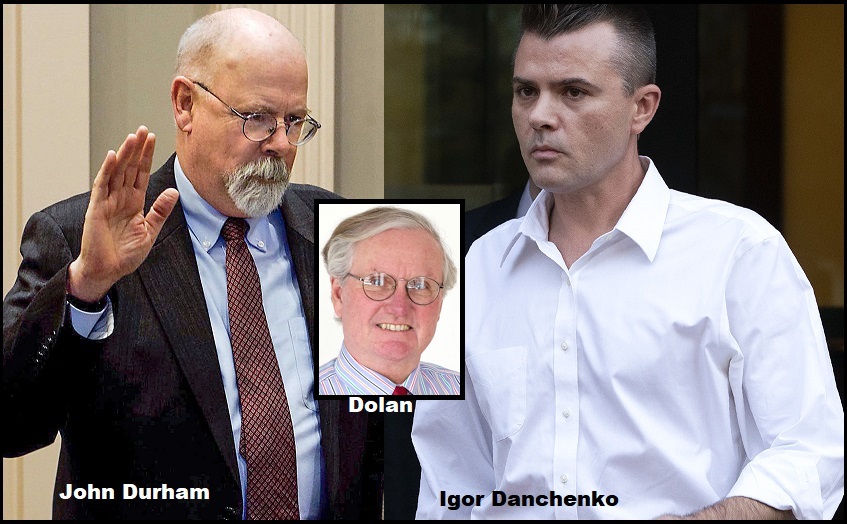
When Charles Dolan was called to the witness stand, he admitted under direct questioning that he “embellished” and manufactured information provided to Igor Danchenko. He also noticed when the Dossier was made public that information he provided was included. In essence, Dolan was one of the many people who generated nonsense lies, which became fabrications within the Steele dossier that the FBI later used to gain a FISA warrant.
It is infuriating, albeit not surprising, to see leftist media like Politico report on the Dolan lies as if the held no consequence. This, after years of pushing the dossier material in order for leftist media to engineer completely fabricated narratives.
(Politico) – […] At one point during questioning, Dolan admitted to having lied to Danchenko in an email in the summer of 2016 about a “GOP friend” he claimed to have met with and who he said provided him with information about former Trump campaign chair Paul Manafort’s resignation. Dolan told the jury that he had “embellished” that claim to Danchenko, and that he had actually obtained the information about Manafort’s resignation from watching cable news, not from a Republican friend.
“I thought I would just embellish a bit to make it seem like his contacts were good,” Dolan said.
Prosecutor Michael Kielty pointed out similarities in the information Dolan provided Danchenko in that 2016 email with information that had ended up in a subsequent report from the dossier, dated just two days after Dolan sent the email. Dolan said that he never provided additional insights to Danchenko, and that he wasn’t aware at the time of why Danchenko was seeking information from him.
“I just thought he wanted to know what the atmospherics were around the resignation,” Dolan said.
Dolan also said he called Danchenko the day that Buzzfeed published the dossier, on Jan. 10, 2017, to “see if he knew where this came from.” The witness said Danchenko claimed he wasn’t sure where the dossier came from and would look into it and get back to him, but never did. (more)
NOTE: Keep in mind that Igor Danchenko is being represented by Hillary Clinton’s lawyers [LINK]
Igor Danchenko was working closely with Democrat Party public relations executive Charles Dolan to funnel the fabricated source material to Chris Steele. Chris Steele, under contract with Fusion-GPS to assemble opposition research that would be used by allies in the media and FBI, then took the Danchenko/Dolan fabricated claims and put it into his dossier.
DOJ official Bruce Ohr, the husband of another Fusion-GPS employee Nellie Ohr, was used as the laundry conduit, the appearance of a second sourcing, to put the dossier into the hands of the FBI. Simultaneously Glenn Simpson took the dossier and shopped it to his media pals. That’s how the entire story was created; and yes, we already knew most of this and Durham is simply filling in the details.
We asked years ago: “Think about a New York Times, Politico, CNN or Washington Post journalist now having to accept that every column inch they have written in the past [four years] was built upon a foundation of lies. Do we really think such a catastrophic level of flawed ideology could ever reconstitute into genuine reporting of fact-based information?” Of course not.
True to form, Politico just brushes aside their years of pushing fabrications by now saying the dossier is “a collection of reports compiled by a former British spy containing now-debunked salacious rumors and allegations about former President Donald Trump’s ties to Russia.” Move along, move along. Ignore media efforts over six years to push this mis-dis-malinformation, or what ordinary people simply call lies.
John Durham also questioned Washington Field Office FBI Agent Kevin Helson, who was the handler for Igor Danchenko as a confidential human source (CHS). Durham blasted Helson for not vetting Danchenko in a variety of customary formats, including the use of a lie detector to ensure Danchenko was not working as a disinformation specialist as directed by a foreign government.
What Durham outlined is essentially that the FBI didn’t care whether Danchenko was a viable and trustworthy source for information, nor did they care the information he was providing was accurate – only that it fed the need of the FBI operatives who were working under the political motive to target Trump. The FBI paid Danchenko over $200,000 for his false information and his handler agent Helson even recommended to pay Danchenko a lump sum $346,000 after they were finished with him. That payment was never made.
As noted by Techno:
“This is the second day in a row that Durham has basically treated the FBI Agents/Analysts as hostile witnesses. First it was Auten, now it was Helson. It’s just not about the incompetence and their basic investigative failures.
It’s also that these FBI Agents and Analysts come across as arrogant, at least from my reading of the transcripts, and continue to hold themselves essentially blameless. All the while, they have at times defended Igor Danchenko, the witness who didn’t tell them the truth. It’s not a good look for the Bureau.” (more)
Keeping all of this Durham information in mind…. The million-dollar question that DC will avoid:
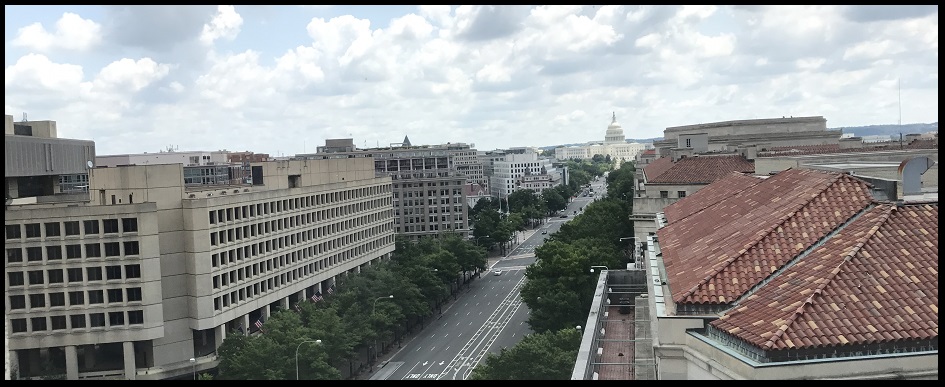
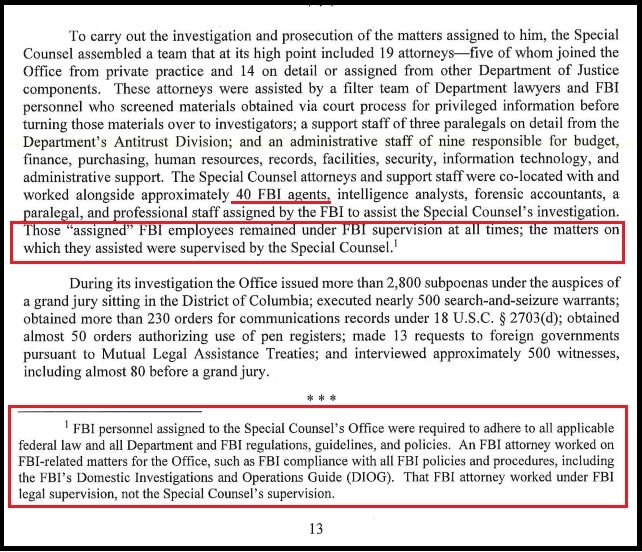
The Mueller Special Counsel refused witness interviews that would have implicated itself